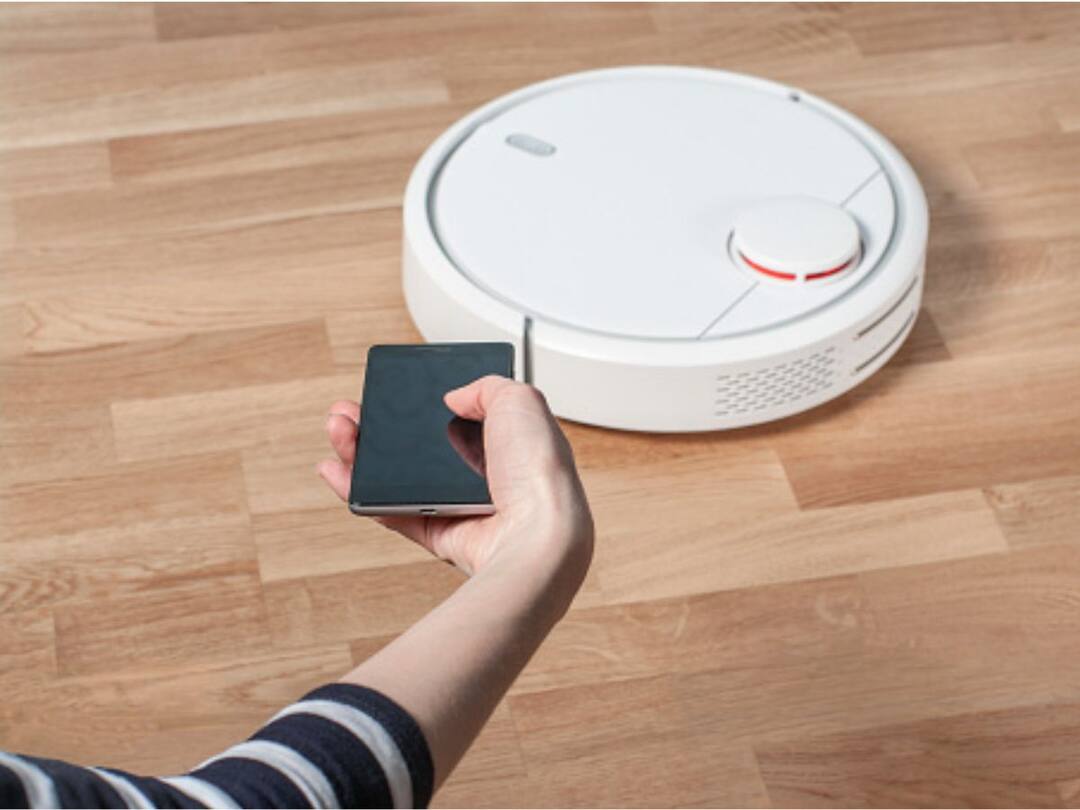(Source: ECI | ABP NEWS)
By 2033, 39% Of Household Chores Could Be Automated, Grocery Shopping To Be Most 'Automatable': Study
The study found that grocery shopping could be the most 'automatable' household task, while childcare will be the least automatable. Automation will reduce time spent on childcare by only 21 per cent.

Within the next 10 years, 39 per cent of the time spent on household chores could be automated, according to a study published February 22 in the journal PLOS ONE. The study, conducted by researchers from the University of Oxford and Ochanomizu University, Japan, found that grocery shopping could be the most 'automatable' household task, while childcare will be the least automatable.
In other words, by 2033, four in ten hours currently devoted to unpaid household work and caring responsibilities could be automated.
The researchers asked artificial intelligence experts from the United Kingdom and Japan what difference automation was going to make to housework and other unpaid work.
28% of care work is predicted to be automated
In a statement released by the University of Oxford, Dr Lulu Shi, postdoctoral researcher at Oxford Internet Institute, said the research suggests, on an average, 39 per cent of the time spent on doing domestic work can be automated, but the degree of automation varies very much across different types of work. She also said that only 28 per cent of care work, including activities such as teaching one's child, accompanying their child, or taking care of an elderly family member, was predicted to be automated.
According to Shi, 44 per cent of housework, including cooking, cleaning and shopping, was thought to be automatable.
Grocery shopping could benefit the most from automation
The predictions of the extent up to which different tasks could be automated varied. Grocery shopping was predicted to be the household task most likely to benefit due to automation.
Time spent on grocery shopping to fall by 60% in 10 years
In 10 years, time currently spent on grocery shopping would fall by nearly 60 per cent, on average, the experts predicted. Cooking and cleaning were also seen as ripe for automation. The experts predicted that the time people currently spend on these tasks will be reduced by 46 per cent in the next 10 years.
Time spent on physical childcare to fall by only 21 per cent
The experts believed that the time spent on physical childcare will be reduced only by 21 per cent as a result of automation.
Ekaterina Hertog from Oxford University said the team found that male and female experts had different expectations about automation of domestic work. This potentially reflects the differences in their lived experiences with technology and their involvement in housework and care work.
Experts from UK and Japan had different opinions about future of automated domestic work
According to the study, the artificial intelligence experts based in the United Kingdom and those in Japan offered different visions of the future. The experts from the United Kingdom believed that automation could reduce domestic work time by 42 per cent. Meanwhile, the Japanese respondents believed that automation could reduce domestic work time by 36 per cent.
Why did UK experts predict a higher rate of reduction in domestic work from automation?
The reason why the experts from the United Kingdom predicted a higher rate of reduction in domestic work time due to automation is that technology is associated more with labour replacement in the United Kingdom, according to the authors.
Nobuko Nagase from Ochanomizu University said in Japan, most artificial intelligence experts are male. She explained that since male experts in Japan expect domestic automation to save much less time compared to their counterparts in the United Kingdom, this may mean that research and development in this area is not receiving the attention it deserves, and household automation may be delayed in Japan. She also said that there is a need to expand the number of female artificial intelligence experts.
Variations in expectations of the future of automated domestic work based on gender
Expectations of the future varied by gender and country, the study found. Compared with the female artificial intelligence experts from the United Kingdom, the male experts were more optimistic about domestic automation. Previous studies also showed that men tend to be more optimistic about technology than women.
However, for the Japanese male and female experts, the relationship was reversed. The authors believe that the Japanese gender disparity in household tasks plays a role in these results.
Time spent on domestic tasks by males and females in UK and Japan is different
According to previous studies, people in the United Kingdom aged 15 to 64 years spend nearly 50 per cent of all their work and study time in unpaid domestic work, such as cooking, cleaning and care. Therefore, the latest research suggests a potential increase in leisure time as some of the domestic tasks get automated.
Working-age men in the United Kingdom spend around half as much time on domestic unpaid work as working-age women. Meanwhile, Japanese men spend just 18 per cent of the time spent by women on domestic tasks. The difference in time spent on domestic tasks between men and women is more apparent in Japan.
Significance of the research
The current study involved 29 male and female artificial intelligence experts from the United Kingdom, and 36 experts from Japan. The experts were asked to estimate the degree to which 17 housework and care tasks might be automated over the next decade. While the study's diverse sample is not statistically representative, the experts' backgrounds offer the potential for "contextualising" their predictions, the authors noted.
The study provides the first quantitative estimates concerning the future of unpaid work and demonstrates how such predictions are socially contingent.








































